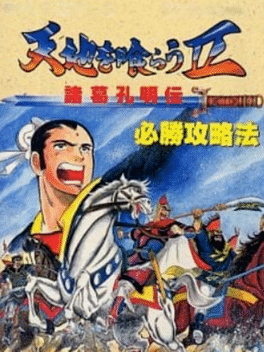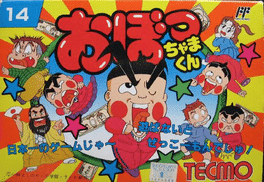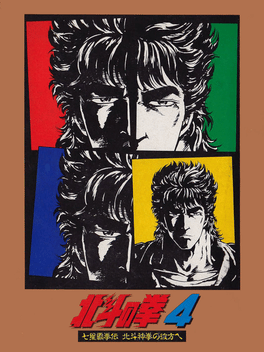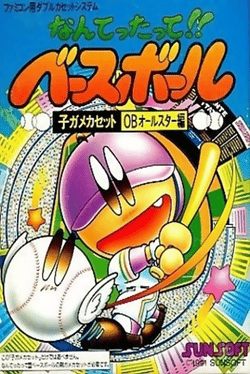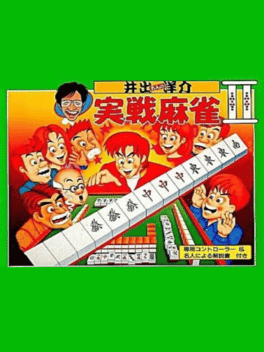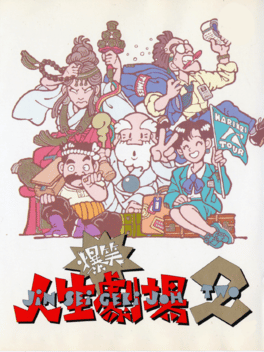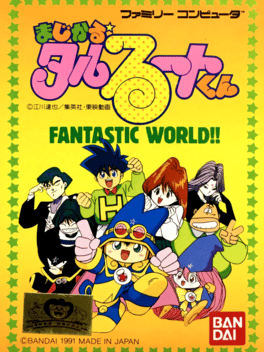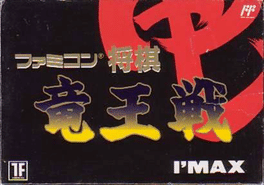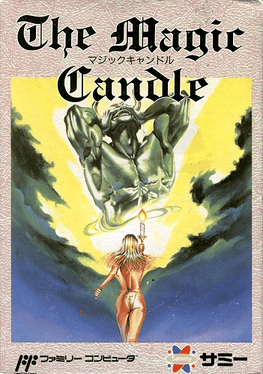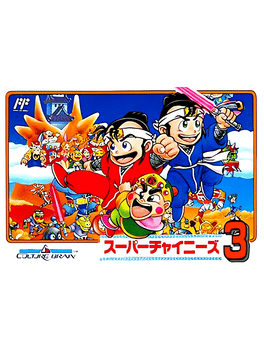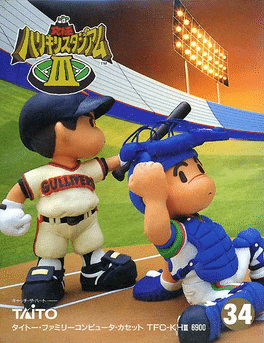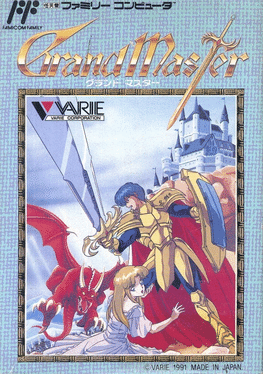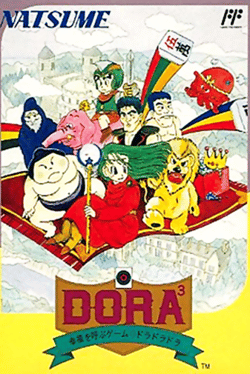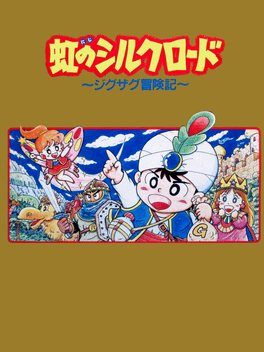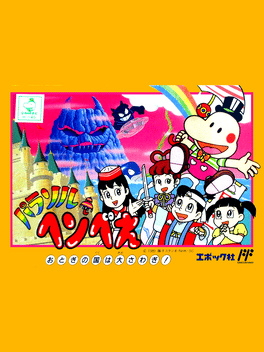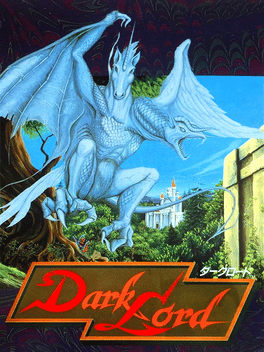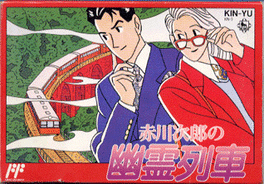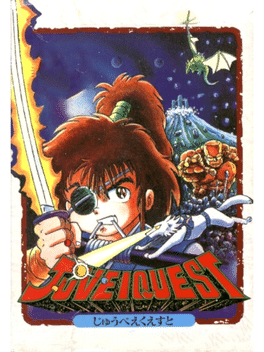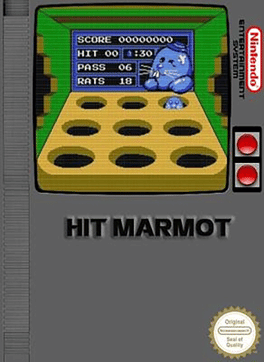New Family Computer Games - Page 23
-
Tenchi wo Kurau II: Shokatsu Koumei-den
1991
A Japanese roleplaying game published for the NES in 1991. Based on the manga Tenchi wo Kurau. Tenchi o Kurau II: Shokatsu Koumei-den ("The Devouring of Heaven and Earth II: The Story of King Ming") is a turn based roleplaying and strategy game developed and published for the Nintendo Entertainment System by Capcom on April 5th, 1991 in Japan. It is the second NES RPG produced by Capcom based upon the Tenchi wo Kurau manga series, the first being Destiny of an Emperor released in 1989. Gameplay: A traditional Japanese roleplaying game at its core, Tenchi o Kurai II puts the player in control of a party of warriors and mages as they try to take down a great foe that threatens the peace of their land. Throughout there are random encounters, boss battles, an experience system and valuable and/or useful loot. The player's party can hold up to seven members at a time, with one members acting as a "tactician". The tactician determines the list of tactics available for use by the player during battle. -
Obocchamakun
1991
Obocchamakun
1991
Obocchamakun is a Miscellaneous game, published by Tecmo, which was released in Japan in 1991. This board game is played by up to four players, and the victory condition is to receive a kiss from the heroine. The map, which resembles a world map, is divided into Europe, Asia, the Soviet Union, Africa, North America, South America, the North Pole, the South Pole, and Tamba World (the underworld), and players must find the treasure demanded by the heroine among them. Treasures obtained by other players can be taken away by physical assault or by using items. Players can earn the necessary liking points to receive a kiss when they deliver the treasure they have found to a randomly selected city where the heroine is staying. When the player reaches the number of points set before the game begins, the player wins a kiss from the heroine. -
Hokuto no Ken 4: Shichisei Hakenden - Hokuto Shinken no Kanata he
1991
Hokuto no Ken 4: Shichisei Hakenden - Hokuto Shinken no Kanata he is the fourth Hokuto no Ken video game released by Toei Animation and developed by Shouei System for the Family Computer, released on March 29, 1991. It is second of three role playing games based on the series produced by Toei, following the previous game in the series. The story takes place in the 21st century, several years after the conclusion of the original, in which a new generation of martial artists seeks to follow the foot-steps of Kenshiro and his rivals, and save from its third dark age. The game's story was written by Hiroshi Toda, who wrote episodes of the Hokuto no Ken anime series, and supervised by original author Buronson. -
Nantettatte!! Baseball OB All Star-hen
1991
Nantettatte!! Baseball OB All Star-hen is a Sports game, developed and published by SunSoft, which was released in Japan in 1991. -
Ide Yousuke Meijin no Jissen Mahjong II
1991
Ide Yousuke Meijin no Jissen Mahjong II is a Miscellaneous game, developed by Arc System Works and published by Capcom, which was released in Japan in 1991. -
Bakushou!! Jinsei Gekijoh 2
1991
Bakushou!! Jinsei Gekijoh 2 ("Burst of Laughter!! Theater of Life 2") is a virtual life board game developed and published for the Nintendo Entertainment System by Taito on May 22nd, 1991 in Japan. It is the second installment in the Bakushou!! Jinsei Gekijou series and similarly follows the previous game by allowing up to four players to take part and travel around a virtual board through chance rolls, playing out a virtual life in its entirety from childhood to senior citizenship making important decisions along the way. Introduced in this version was the concept of going to prison for crimes, and gambling in a casino. -
Magical Taluluto-kun: Fantastic World!!
1991
Fifth grader Edojou Honmaru is one of the most trodden-upon losers in his class, until he meets Magical Taluluto-kun. Taluluto's powers help him deal with all his hardships, such as girls, bullies, and numerous other challenges. -
Famicom Shogi: Ryuu-Ou-Sen
1991
Famicom Shogi: Ryuu-Ou-Sen is a Miscellaneous game, developed by Home Data and published by I'Max, which was released in Japan in 1991. -
The Magic Candle
1991
The Magic Candle
1991
The Magic Candle is an action role playing game for the Nintendo Entertainment System. -
Super Chinese 3
1991
Super Chinese 3
1991
Super Chinese 3 is a Role-Playing game, published by Culture Brain, which was released in Japan in 1991. Final Famicom game in the series. -
Kyuukyoku Harikiri Stadium III
1991
Kyuukyoku Harikiri Stadium III is a Sports game, developed and published by Taito Corporation, which was released in Japan in 1991. -
Grand Master
1991
Grand Master
1991
Featuring a Western fantasy theme, Grand Master is an action RPG developed by Soft Machine and Published by Varie with a story told through multiple story branches the player can discover. -
Koufuku wo Yobu Game: Dora Dora Dora
1991
Koufuku wo Yobu Game: Dora Dora Dora is a Mahjong video game released on the Nintendo Famicom in 1991. This game allows you to play traditional Mahjong games against a computer or to play an RPG adventure in which you fight enemies by playing rounds of Mahjong. -
Niji no Silkroad
1991
Niji no Silkroad
1991
Niji no Silkroad is a role-playing video game for the Japanese version of the NES, the Famicom. It was developed by NHK and published by Victor Interactive Software (now Marvelous Entertainment) in 1991. The game was only released in Japan. The player controls the main protagonist, an exiled prince of LittleLand that has been recently informed of his royal heritage. To reclaim the throne, the prince must collect seven shards of the Rainbow Mirror and defeat the usurper, Zrool. The shards are scattered throughout South Asia and the prince must trade goods to make his way to each region. Once the mirror is collected, the prince shines it at Zrool and exposes the imposter. The prince then takes his throne as the new king. -
Parasol Henbee
1991
Parasol Henbee
1991
This game is based on the Anime series of the same name and was released only in Japan for the Nintendo Famicom. Not to be confused with the Game Boy title of the same name. -
Dark Lord
1991
Dark Lord
1991
Dark Lord is a Role-Playing game, developed and published by Data East, which was released in Japan in 1991. -
Akagawa Jirou no Yuurei Ressha
1991
Akagawa Jirou no Yuurei Ressha is an Adventure game, developed by Mighty Craft and published by King Records, which was released in Japan in 1991. -
Juvei Quest
1991
Juvei Quest
1991
Juvei Quest is a Role-Playing game, developed by Birthday and published by Namco, which was released in Japan in 1991. -
Hit Marmot
1991
Hit Marmot
1991
Hit Marmot is an Action game, developed by Mega Soft and published by NTDEC, which was released in Asia in 1991. -
Magic Cube
1991
Magic Cube
1991
Have you ever played with "Russian Blocks?" And have you played with "Magical Stone?" If yes, we'd like to tell you now that these games are out of date. The newest "Magic Cube" will bring you to the new world! Break through the traditional routing and combine with the new idea. Play it and you will know how fantastic it is!
